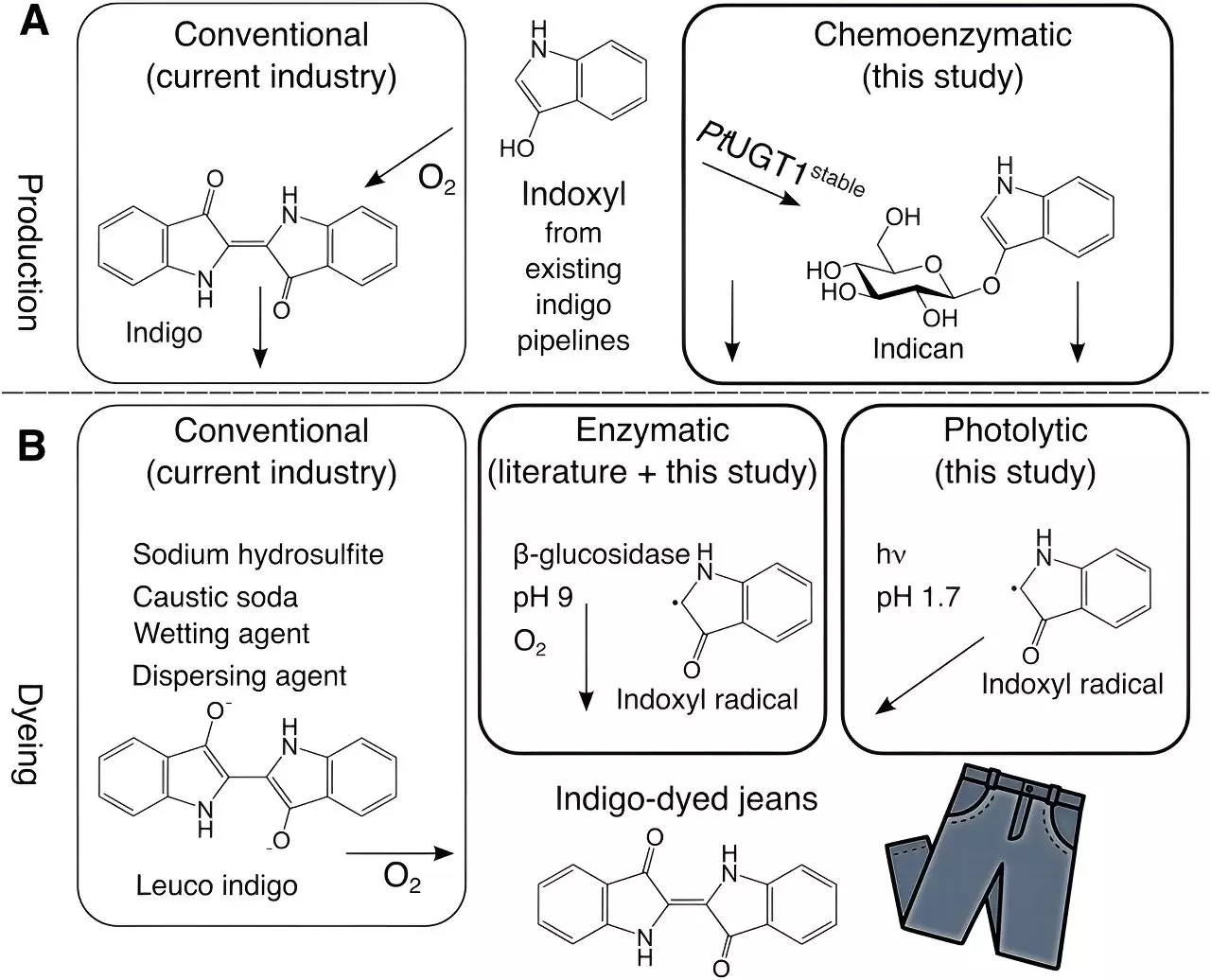The denim industry, worth billions of dollars, is facing growing concerns about its impact on the environment. The traditional indigo dye used in many denim products requires toxic chemicals, large amounts of water, and contributes to significant carbon dioxide emissions. However, a recent study published in Nature Communications suggests a potential solution – a new dye derived from Indican, a colourless compound found in indigo-producing plants. This alternative could reduce the environmental and societal impacts associated with dyeing jeans by up to 90 percent, as it eliminates the need for toxic chemicals.
The researchers behind the study have engineered an enzyme that can produce Indican on an industrial scale. By dissolving Indican in water and either activating it with an enzyme or exposure to light, it can be used as a dye for fabrics. Light-driven dyeing with Indican has the potential to reduce the environmental damage of traditional indigo dyeing by 73 percent, while using the enzyme could cut the impacts by up to 92 percent. Furthermore, the resulting color of the denim remains the same as when using conventional indigo dye.
Potential Environmental Impact
If Indican were to replace indigo in the dyeing process of the nearly four billion jeans produced annually, it could lead to a significant reduction in toxic waste production and global CO2 emissions. While the production of Indican may still require petrochemicals, the benefits of its use in dyeing outweigh the initial environmental costs. The authors of the study, who hold a patent for their research, acknowledge that there are some limitations, such as the lack of facilities to simulate large-scale Indican production. Additionally, Indican may be slightly more expensive than traditional dye.
Despite these challenges, the growing demand for sustainable clothing among consumers could make Indican a commercially viable option for the denim industry. By embracing this new dyeing technology, manufacturers can align their practices with environmentally conscious consumer preferences. The potential benefits of using Indican go beyond reducing pollution and carbon emissions – they also offer a path towards a more sustainable future for the denim industry as a whole.
The development of Indican as a viable alternative to traditional indigo dye represents a significant step towards a more sustainable denim industry. By reducing the environmental and societal impacts associated with dyeing jeans, this innovative solution has the potential to transform the way denim products are manufactured and contribute to a greener and more eco-friendly future.



Leave a Reply